If you’re coming here for an answer to this question you’d be right in thinking I’m a little biased. Since buying my first bunny over 10 years ago, I have chosen to spend a lot of time in their company (even preferring them over some of my human friends!) it’s a safe assumption that they have had a big impact on my life so if someone were to ask me the question ‘do rabbits make good pets?’ here’s what I’d say
Rabbits make amazing and rewarding pets for anyone willing and prepared to give up their own time to look after one correctly. When allowed sufficient enrichment in the form of space, freedom, and companionship every rabbit will develop its own unique personality.
If you’re like me, you might often find yourself in the local pet store being overwhelmed with the cuteness of baby bunnies (and other fluffy animals) while wishing you could bring them all home with you. Indeed this is the reason I currently have a brood of six!
However more recently (and perhaps as I’m a little jealous that I am not allowed to bring any more home myself) I find myself in those same pet stores watching and wincing at the many seemingly oblivious people who buy bunnies on impulse with just as much consideration as they take when choosing which flavor of soda to take from the refrigerator.
As easy as it is to fall in love with a beautiful baby bunny or give in to a persistent child the reality is that bunnies as a pet can be a real handful and they grow into (often large) rabbits.
This brings with it several challenges that many buyers don’t realize until it’s too late and it’s the reason that so many poor rabbits end up homeless or in shelters.
This situation could easily be prevented through simple education into the amount of care and attention a rabbit needs.
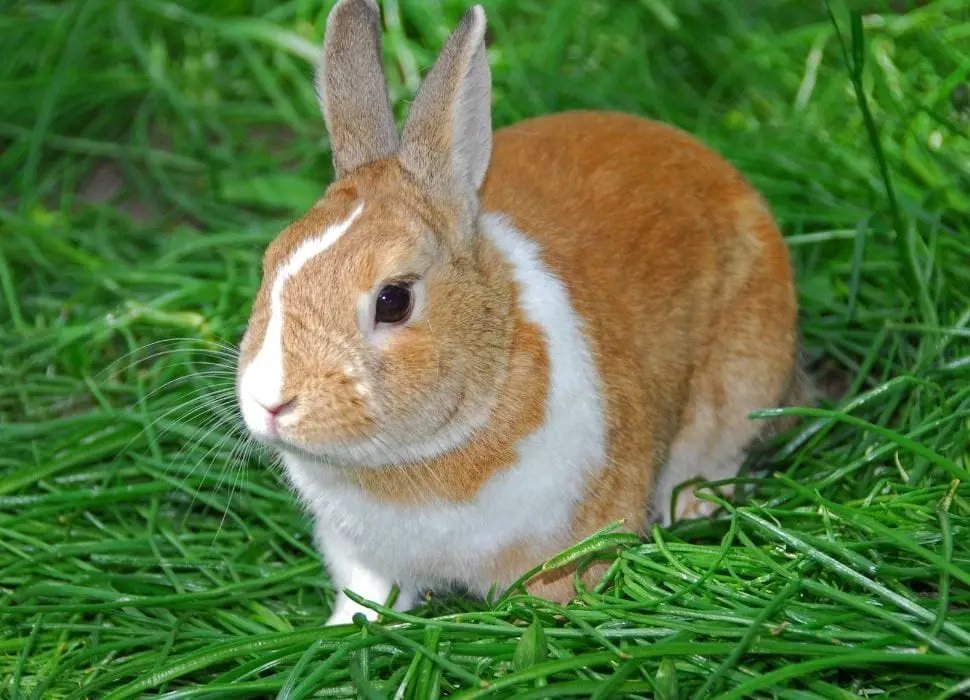
Having owned pets of many different shapes and sizes, from lizards and snakes to fish and even frogs, I accidentally fell into rabbit ownership and I can say honestly that they have been the most rewarding pet I have ever owned.
As someone who has given nearly a decade of my life trying to make my rabbits as happy as they can be (in a captive environment) I know from my own experience that provides exactly what they need is very challenging and involves a major long-term commitment.
This is just one of the reasons (dare I say it!) that rabbits do not prove to be a well-suited pet for young children.
If you’ve found this article because you like the idea of rabbit ownership and want to know if owning one is really such a good idea, I congratulate you on your intention to do some research (You’re definitely a more sensible person than I was when I jumped straight into the unknown with my first bunny ‘Popcorn’).
You’ve probably gathered that the real answer to the question goes far beyond just a simple yes or no. Although it is of course true that rabbits make brilliant pets several other things should be carefully considered before deciding to bring one into your home.
So before you make a beeline for your nearest pet store or shelter please take some time to carefully consider a few of the realities of rabbit ownership!
Rabbits and young children don’t always mix
Any time I hear a visiting friend who has been entertained by my rabbits (as they playfully run around the house) expressing an interest in getting one for their young children I carefully advise them against it.
Of course, while I’m not against children owning pets such as hamsters or goldfish, rabbits as sensitive and highly intelligent animals are quite unsuitable.
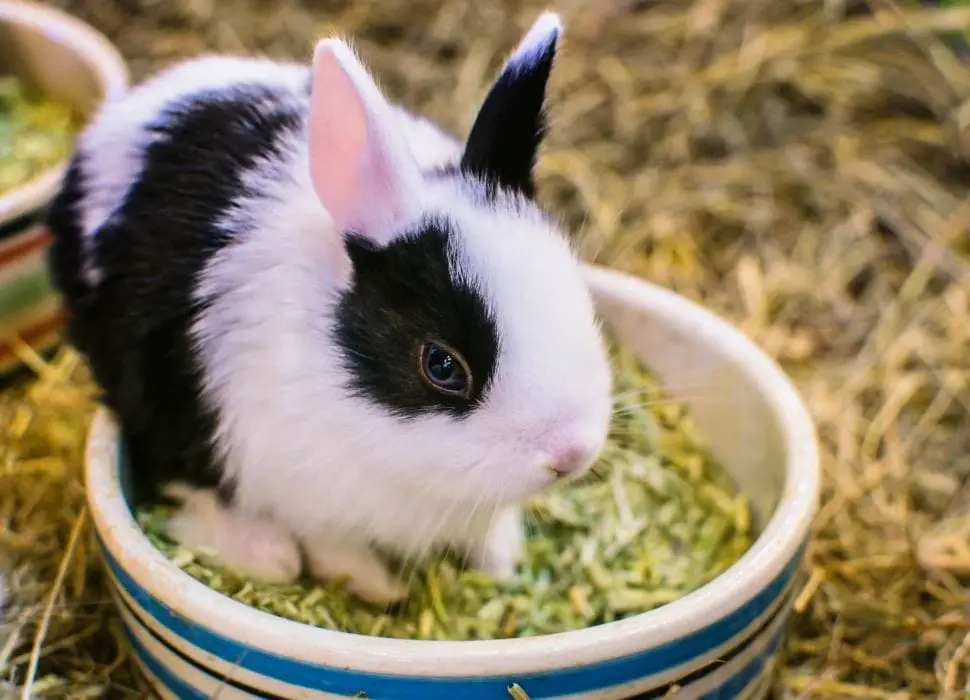
Children are constantly enjoying new experiences and discovering new things, some of which may go on to become hobbies or interests while others simply get filed under the ‘tried it and didn’t like it’ category. This is perfectly normal and part of growing up.
As loving as any child might be, a child’s love usually involves grabbing, holding and carrying around anything he or she sees a new toy, this quickly then becomes the old toy as soon as something new and interesting comes along.
This is completely harmless when a lifeless toy is involved, but these innocent actions can be potentially life-threatening and terrifying for a poor bunny unfortunate enough to be on the receiving end.
As prey animals, rabbits often have a very nervous disposition, not only will they be extremely frightened of loud noises and sudden movements that young playful children are prone to making, they will likely perceive being grabbed by a child as being captured by a predator.
Very young children unaware of the strength of pressure they put on a bunny may also cause distress or an injury to the bunny or at the very least be bitten by and scratched as the bunny reacts to the threat, this will most likely result in the child unlikely to ever want to touch the bunny again.
Consequently, the poor bunny is soon either packed off to the nearest shelter, released into the wild to face certain death from a predator or worse still confined to a short and lonely life in a filthy 3 by 2 feet hutch.
In summary, as adorable as a young child looks with a bunny sat on their lap for a cute photograph, it’s wise to hold off buying them their very own bunny until they are at the very least in their early teens unless you are happy to be the responsible caregiver for the bunny.
When they get closer to becoming young adults you can be more confident in their sense of ownership and responsibility and be able to make a better judgment (at this age you may find that they may be more interested in their friendships and their Facebook accounts anyway).
If they still have their heart set on a rabbit and you are confident that they can provide the required care (maybe demonstrated with less demanding pets) by all means, go ahead and get them one, they make amazing pets!
Rabbits will take up a lot of your time
So you like the idea of a rabbit but do you have time?
A lot of people who buy or adopt a bunny do so thinking that they will be an easy pet to look after. Even shelters keen to offload one of their many unwanted bunnies onto a new home may not give you the full story of how demanding they can be. The truth is that achieving a happy and well-looked-after bunny will prove to be just as demanding on your time as a dog.
Rabbits need enrichment, love, and company. They love spending time with their favorite human and will get bored easily if they are not treated as part of the family (especially if they don’t have a companion of their own species).
A well looked after rabbit makes an entertaining and rewarding pet, it will grow to recognize you as his owner, perhaps follow you to the fridge at feeding time (for house rabbits), and (just maybe!) if you are extremely lucky even hop up onto your lap for some head strokes when called by name.
But to achieve this with a rabbit, it’s going to take some time and you will need to be prepared to give up a lot of your own to interact and build your rabbits trust.
If you intend to keep your rabbit outside (not recommended especially for young bunnies) this might involve going outside in the early hours (and in all weathers) to say hello and give him his fresh veg, hay, and water for the day. You’ll need to do the same again before you head off to bed.
If this sounds easy, remember you’re going to be doing this every single day for the next 8, 10, maybe even 12 years!
Unlike dogs, you will not need to take a rabbit for a walk however a captive rabbit will need daily exercise.
For the more ambitious owner, this can be achieved by creating a custom made and secure run area that the rabbit has 24-hour access to but for most new owners you’ll probably more likely find yourself taking time to time to supervise the rabbit while he stretches his legs and enjoys evening laps around your garden.
Along with these daily tasks you’ll also be carrying out less frequent (but vital) maintenance tasks such as grooming and nail clipping, cleaning of litter trays and cages, along with other indirectly related tasks such as fetching hay from your local supplier, or vegetables from the local supermarket.
These are just some of any number of things you might end up doing for your rabbit during his lifetime, some of which will be enjoyable (grooming) while others (cleaning poop from the fur of an elderly rabbit or taking a trip to a vet for a medical issue) can be potentially distressing.
In summary, it’s important to be aware that as rewarding as rabbits are, they are also a huge demand on your time.
That said, those prepared to treat one as a member of the family and put in some time will get a shed load of fun and enjoyment.
Rabbits can be destructive
A rabbit’s teeth never stop growing and although it is possible to ‘bunny proof’ your house a curious rabbit will often still do what comes naturally.
While chewing can be discouraged somewhat via the use of chew toys and enrichment in the form of exercise a mischievous rabbit might still find something he favors over all the toys you have provided to him! (Usually your valuables, shoes, handbags or important documents!).
This became painfully evident to me when despite their large exercise run and ample chew toys my own rabbits decided to destroy around $1000 of my wife’s dress and shoe collection!
In particular, rabbits seem to target trailing ethernet cables so don’t be surprised to find your internet cut off when you go to check your Facebook or Instagram. Protecting cables with plastic tubing, hiding them under a rug, or putting them out of reach is essential if you don’t want to fall victim.
Furniture will also be a target and while preventative measures such as off-putting scent sprays applied around some furniture might prove a temporary deterrent, a persistent bunny will go out of his way to get what he wants, crawling behind cupboards, sofa’s, basically anywhere he can to explore his surroundings.
For these reasons, safety is paramount when bringing a rabbit into your home. Any electrical cables from appliances such as televisions and cable boxes should be well protected and heavy objects or obstacles which might injure him if they fall should also be removed or secured.
While you may find that you get lucky and get away with the odd chewed chair or table leg or the corner of a sofa there are no guarantees where a bunny is concerned.
If you are set on getting a bunny you might just need to accept that you will occasionally suffer or (for those who are obsessively house proud) accept that a bunny might not be for you.
Rabbits shouldn’t be left alone for too long
We all enjoy a holiday so it’s worth remembering before you commit to buying a rabbit that just like dogs or cats you will need to find someone responsible to care for them while you are away.
Dependent on the size of the rabbits own home, it is possible with careful planning to leave them overnight (possibly even two at a push, as long as you ensure availability of food, water, and good quality hay) but for trips in excess of a couple of days, it’s essential to find someone trustworthy to house sit or visit.
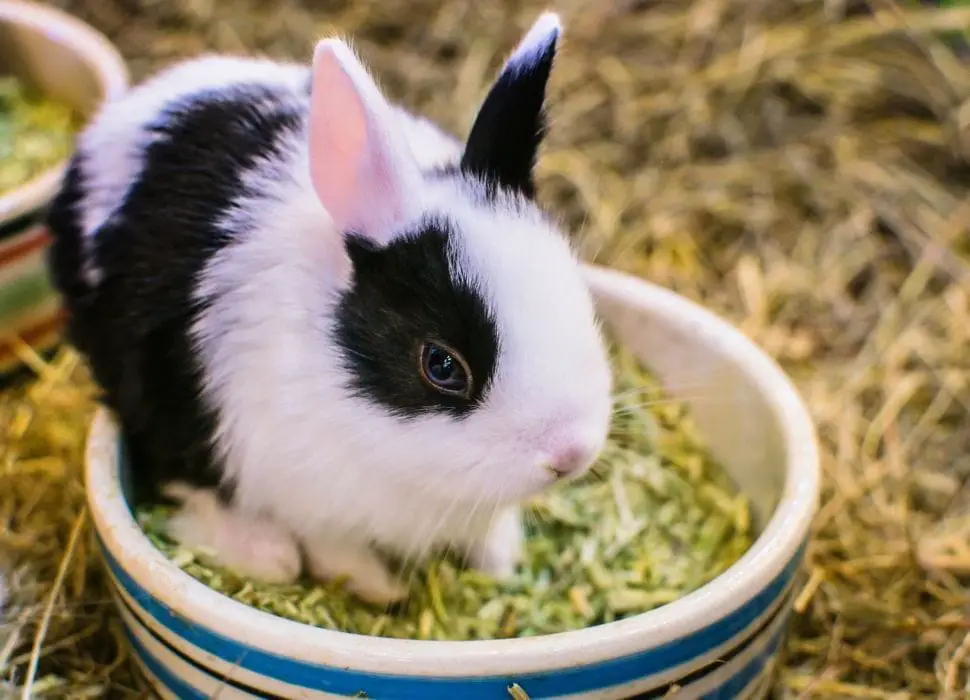
The problem with this is that once you start to obsess over your rabbits as most owners eventually do, you probably won’t be confident that anyone will be able to give them the same level of care they are accustomed to!
As such the best option during your long breaks away is a dedicated sanctuary or boarding home. The advantage of this set up is that you can be sure that any area they may put your rabbit in will be safe, rabbit proofed and escape won’t be a possibility.
The disadvantage is that for anything over a couple of weeks you will probably be looking at a hundred dollars per week or more per rabbit. These costs mount up (for reference my last boarding of 14 nights for four bunnies cost me approximately $450, not far off the cost of the holiday itself) not to mention the psychological effect as I worried constantly if they were OK!
In short, if you’re accustomed to frequent trips away owning a rabbit can certainly be a potentially expensive spanner in the works.
Rabbits need company
Rabbits live in large social groups and though they will love spending time with you, it’s very rare that you or anyone else could ever be able to compete with the companionship that they will enjoy from another rabbit (especially one of the opposite sex).
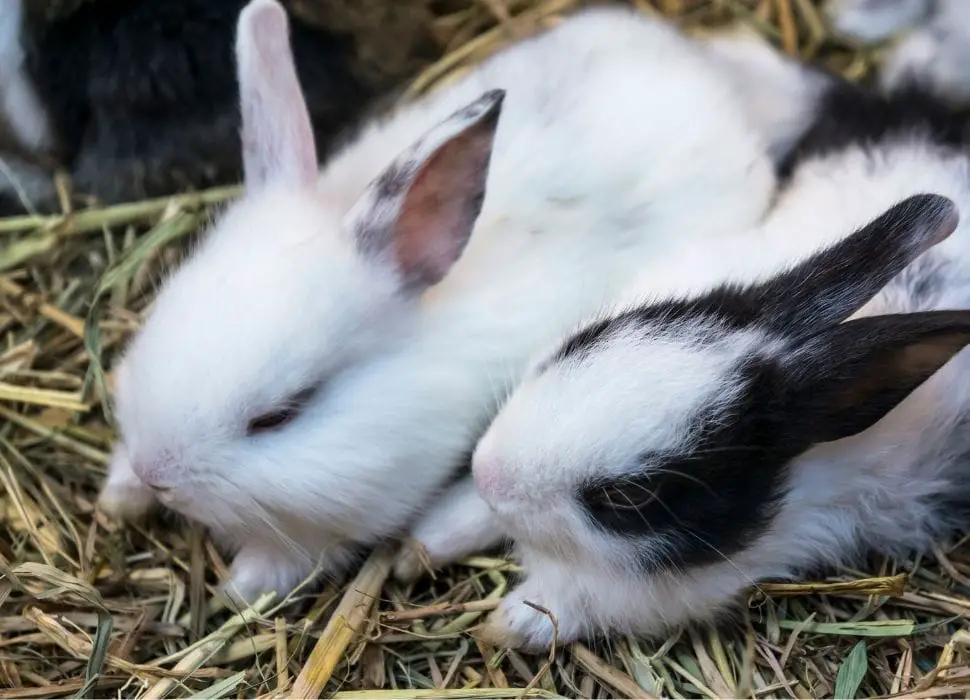
For house rabbits, especially free roam ones left to potter around your home all day (while you are out at work) a friend is essential as they will be especially prone to loneliness and depression (and more likely to get up to mischief in the form of chewing as previously mentioned).
For this reason and the overall health and mental well-being of your rabbit, it’s recommended to source or adopt a suitable companion as soon as possible.
Of course, this will also mean, time money, and cost (neutering or spaying) not to mention the effort that might be necessary for activities such as toilet training and bonding.
However, keeping two rabbits is highly worth the extra effort. Bonded pairs are a joy to watch, especially as they groom and look after each other. Rabbits rely on each other to stay safe and will stick closely with a bonded partner. If humans could learn a thing or two from rabbits, the world would be a much better place!
Rabbits are expensive and live a long time
As well as the huge commitment in time discussed earlier in this article rabbits are also a huge financial responsibility.
Although relatively cheap to buy or adopt don’t let the small initial cost fool you.
A rabbit can live for up to 12 years or more so it’s important before you get one to be sure that you want to provide the long term care that it needs, you should only decide to take one on if you are sure you can provide what he needs to live a long and happy life.
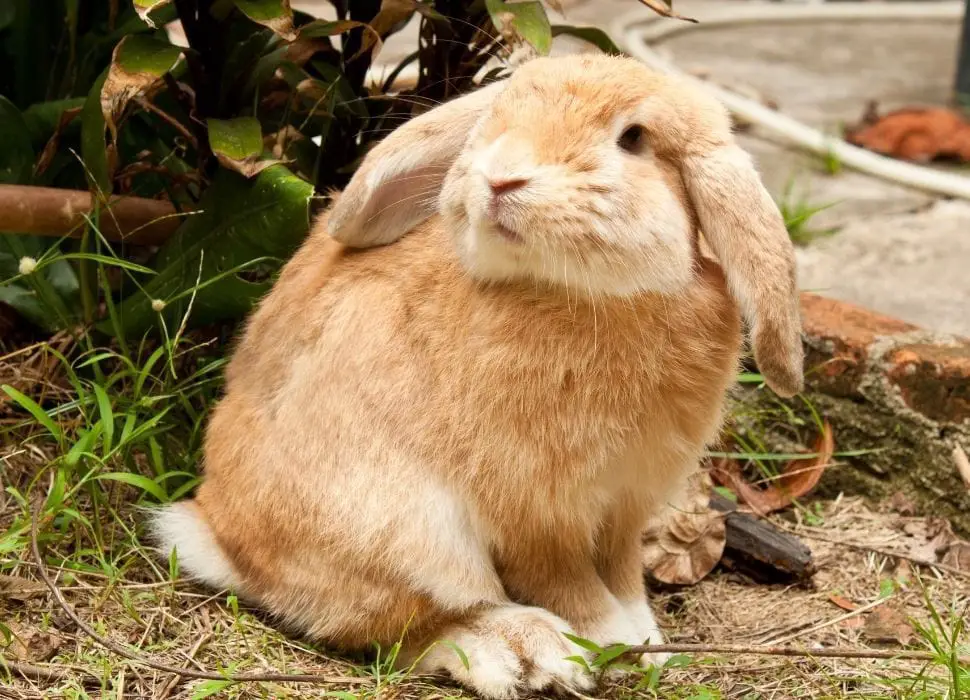
As well as a starter hutch which you’ll probably find you’ll be frequently upgrading (due to the relatively cheap grade woods used to build them) you’ll need to find the money for vets fees for initial and ongoing check-ups, annual vaccinations against Myxomatosis and VHD, and spaying or neutering costs.
That’s before you even start on the weekly costs involved, such as hay and fresh vegetables, cleaning supplies, and of course, treats for your lovely fur babies (careful, not too many though!).
Rabbits have delicate digestive systems, they are very quiet when they are ill and it’s common to panic when your rabbit doesn’t seem his usual happy self. As is the case don’t be surprised to have to take the odd emergency trip to the specialist vet if your rabbit has an issue. Expect to spend a few hundred dollars just to have him checked over!
Remember these costs are likely to be over many years so again, be sure to do your research. If keeping a rabbit is likely to put you in financial difficulty, there’s no shame in putting it on hold until you can afford it.
You may be allergic to rabbits
One thing that may be overlooked when deciding to get a rabbit is the possibility of allergies. These could be to the rabbit itself or even the grass hays they require.
Rabbits are very clean animals who groom themselves several times a day (often after one of us filthy humans has touched them!) however some people do experience allergies when keeping rabbits.
Contrary to belief, it is not the fur of the rabbit that is usually the problem, rabbit related allergies usually stem from a protein found in the saliva that the rabbit washes and grooms himself with constantly.
Touching areas such as your eyes and nose after handling your rabbit may cause an allergic reaction in sensitive humans prone to allergies. This can cause a person to display cold or flu-like symptoms as the body tries to fight off these proteins.
If you suffer from asthma or other respiratory issues or you are extremely hypersensitive then it is likely that you won’t be able to provide the kind of hands-on care that a rabbit needs.
Restricting your rabbit’s movement in living areas or keeping the rabbit outside may be an option but would almost certainly have a negative effect on your bonding and relationship with your bunny.
If you or a family member is likely to have an issue with a rabbit, considering an alternative pet is a preferable solution another rabbit prematurely given up to a shelter.
Rabbits are most active at dawn and dusk
Rabbits are crepuscular which means they are most active at dawn and dusk. This makes a rabbit a convenient pet for working people on an average 9 to 5 but also means that if you have a house rabbit he’ll be entertaining himself well into the early hours which may be a problem (especially if you are a light sleeper).
If you keep your rabbit inside the house he’ll likely be awake when you get up (probably waiting for his breakfast!) and will take frequent naps throughout the daytime while you are at work before becoming active again when you return home.
I often witness this from my house rabbits Snowball and Nery’s who apart from a brief sighting at breakfast on a Sunday morning time choose to spend the rest of the daytime napping underneath my bed before spending the evening into the early hours up to mischief.
In short, if you have a house rabbit feel free to do away with the alarm clock!
Rabbits require frequent cleaning
There’s no getting around it, rabbits poop a lot. In fact, they are pooping machines, it’s not unusual for a single rabbit to create around 200 pellets per day.
This can be quite a shock for a new rabbit owner and while it will become less frequent as the rabbit gets older and is spayed or neutered, litter areas will still require daily cleaning.
As well as the round hard pellets which are fairly easy to clean rabbits also produce softer feces called caecotrophs which (you might be shocked to find) they eat directly from their bottoms, as disturbing as it sounds it is perfectly healthy and normal for the rabbit’s digestive process.
As well as daily cleaning of a rabbits toilet areas, you will be required to refresh their whole living area with bunny safe disinfectant and clean hay in sleeping areas at least once a week.
If you’re squeamish, this might take some getting used to (as clean as rabbits are) the amount of mess they can generate is not for the faint-hearted (or work-shy!).
Rabbits are territorial
Rabbits have scent glands under their chins which they use to mark anything that they decide to possess! This may even include you.
If you’re thinking of taking on a male rabbit (pre neutering) you’ll likely find that as he grows he will marking territory by both scenting and spraying. This can be a problem especially if you intend to keep the bunny in the home as you’ll find urine sprayed wherever your bunny has been.
With young males reaching sexual maturity you may even hear grunting or honking noises which although they are very cute to hear are also a sign of a highly charged frustrated bunny. As a responsible owner, you will need to look to neuter him at around 4 – 6 months to keep him happy, healthy and reduce territorial spraying behavior.
Rabbits have specialist dietary requirements
Don’t believe the cartoons, rabbits can’t live on carrots alone, in fact, carrots contain a lot of sugar and small pieces should be given only as an occasional treat. Educating yourself on a rabbit’s dietary requirements is important before you decide to take one on.
Rabbits have complex digestive systems designed to consume large amounts of plant material and make the most efficient use of the nutrients found in their diet.
The most important staple of a rabbit’s diet is hay which should be given in ample amounts on a daily basis (an amount equal to the size of the rabbit at least!) and should make up around 80 % of the rabbit’s overall diet.
The constant chewing of this fibrous plant-based material ensures that the rabbit’s teeth will be sufficiently worn and won’t overgrow.
All treats should be given in moderation and should be checked for ingredients that may be harmful. Seed-based treats are particularly bad for a rabbit and sweetcorn should be avoided at all costs as the indigestible husk of corn can also cause gut stasis.
For other greens, avoid broccoli which I have found can cause a rabbit uncomfortable trapped wind. Another vegetable I’ve also found troublesome is lettuce. Lettuce, (in particular Iceberg lettuce) contains large quantities of lactucarium which combined with the high water content can cause diarrhea to the point of dehydration or even death.
While some types of lettuce may be fine there are plenty of other delicious and safe leafy greens, and it’s not worth taking any unnecessary risks with a rabbits welfare.
Consider other pets
We’ve mentioned considering allergies of the human residents of your home but what about the impact on other pets?
While rabbits can get along well with other pets introductions need to be carefully handled and common sense should be used to ensure the rabbit is not put under any stress or in danger.
Two pets or more in a household might not take too kindly to a new pet being introduced especially if they are an already established and friendly pair.
However, if the rabbit is the first pet in your home then introducing another young pet afterward, such as a cat or a puppy (depending on the breed and size) may make the bonding process a lot easier. Furthermore, if they are both young and grow up together then they won’t really notice that they are of a different species.
That said, leaving a free roam rabbit at home with a large dog may not be a good idea, animals sometimes can’t help when their natural instincts take over so in this example, keeping the rabbit separated from the dog until under supervision would be advisable.
While having your rabbits bond with other pets isn’t impossible it does take a lot of work and is a decision that should not be taken lightly. Always consider the rabbit’s best interests and safety before putting them in a potentially dangerous situation.
And remember, under no circumstances should a rabbit ever be introduced to a ferret!
Rabbits are prone to health issues
Rabbits are delicate animals and are prone to many health issues and illnesses.
While some conditions such as respiratory issues can be caused by a lack of cleanliness on your part as the carer of the rabbit, there are also some issues that may affect your rabbit regardless of how well you look after him. These can be distressing for both the rabbit and you as an owner.
A rabbit with a problem will often hide this as a defense mechanism. Although this helps rabbits as prey animals to survive in the wild it makes life difficult for owners as problems are often only identified when the rabbit is in dire need of medical assistance.
I sadly experienced this myself when I returned home to find my poor first rabbit, Popcorn at death’s door having been fine just a few hours earlier. Sadly he didn’t survive the night.
As a new and inexperienced owner at the time, I know now that if I had known a bit more I may have been able to save him.
When deciding to keep rabbits, it’s important to be aware of some of these conditions and their symptoms so that if your pet has a problem you can give them the strongest chance of survival.
Always adopt, don’t buy!
Many people interested in getting a rabbit choose to go and buy a baby bunny from their nearest pet shop, however, these bunnies grow up to be rabbits and are often abandoned when people realize how much work they are.
Up until recently I too was guilty of this practice however there is a much better option. There are thousands of abandoned rabbits around the world desperately waiting for a kind human just like you to save them!
I took one of these rabbits home as a friend for my young male rabbit Snowball and despite being warned that she was a violent ‘terror’ of a rabbit, Nery’s has been a wonderful companion to Snowball and a joy to be around.
The pet trade, just like anything is a business and as long as there is a demand for baby bunnies there will, unfortunately, be thousands abandoned every year If you are serious about getting a rabbit and you’re confident that you can look after one properly, why not save one of these often mistreated rabbits from a life of misery and give them a loving and forever home.
Wrap up
If you have made it to the bottom of this research, well done! And if you’ve considered all of these factors and you’re still sure you can give a rabbit a loving home I’m positive that you will make a great bunny mum or dad!
Remember if anybody ever asks you if a rabbit makes a good pet, the real question is ‘will you make a good owner?’
Good luck on your own rabbit ownership journey!
Further Reading
Getting a Pet Rabbit: What to Expect myhouserabbit.com
Do Rabbits Make Good Pets? petfinder.com
Do rabbits make good pets for children? campnibble.com
